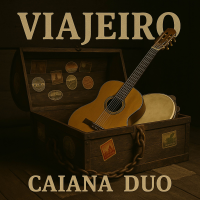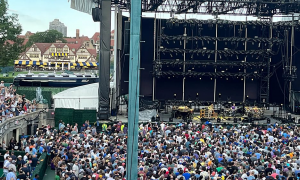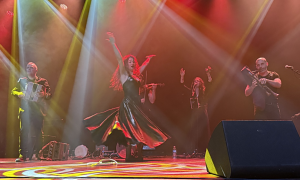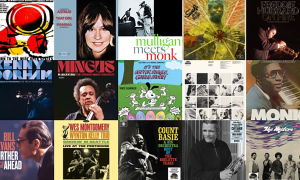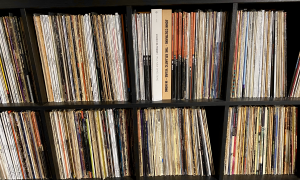Home » Jazz Articles » Journey into Jazz » No Future Without New Fans
No Future Without New Fans

I came to jazz in a very roundabout way. My family moved from Beaumont, TX to San Antonio, TX when I was five years old. I spent my youth growing up in a city with one major sports franchise; The San Antonio Spurs. My twin brother and I are the first and only musicians on either side of my family. The year my family moved to San Antonio The Spurs drafted David Robinson with the number one overall pick in the NBA draft. Everyone who was young and played basketball in San Antonio loved David Robinson. Coincidentally, David Robinson was a saxophonist in his spare time. I had a basketball card of David Robinson with a photo of him playing saxophone and that almost insignificant detail drove me to eventually pick up the horn.
As life would turn out, a career in basketball wasn't in the cards for me. While I love basketball, I don't need to play professionally or know the tradition of basketball to enjoy it. Similarly, I fell in love with saxophone for the simple fact that if I practiced, I got better. Seeing improvement is what becomes addictive. I was introduced to jazz by great teachers after I had shown enough progress on my instrument to comprehend the work that goes into becoming a jazz musician. I threw myself into jazz because there were no saxophone virtuosos in other genres of music that could compete with

Charlie Parker
saxophone, alto1920 - 1955

John Coltrane
saxophone1926 - 1967

Joe Henderson
saxophone1937 - 2001
As far as jazz is concerned, if we look at Lincoln Center Jazz Orchestra as highest professional achievement in jazz (financially speaking), we are in trouble.

Wynton Marsalis
trumpetb.1961
My goal isn't to promote jazz or bury it. I started down a path in music because I loved learning the saxophone and it is now my intention to create an alternative path so that young people can see pursuing an instrument as a worthy investment of their time and energy. Jazz captured the struggle of a certain period in American history. Jazz gave the saxophone a place in the world. The music created the modern drum set. Jazz explored improvisation to its limits. I am not here to argue about the history of jazz or the origins of the word. It is pointless to waste time and energy trying to change the past when there is so much to be done in trying to build a better future: to do this, we need to attract new fans.
if you want to play a gig in New York City (and many other places around the country), the onus is on you to book, promote, create the music, rehearse the band and bring bodies willing to buy drinks at the show. This is a difficult task in any music style, now add the baggage and preconceived notions surrounding the word "jazz." It is incredibly difficult to get young people unattached to jazz to want to see even their musician friends at such a club. To reach a younger audience it is common sense to look at how music styles with actual young fans present their music. In New York, I see many of my contemporaries playing in non-traditional music venues. These musicians are using projectors and various technologies to draw listeners into their music and create a multimedia experience. If we want to see new young audience members at instrumental shows we must go to them not only musically but physically too (to the places they see live music).
We don't owe the older generation anything. Pursuing only the tradition won't get us anywhere. We have given of enough of ourselves and we have been left with a broken financial system in this jazz world. We aren't going to come up with new scales, chords, or rhythmic relationships, but we do have the freedom to reject previous styles and build a music community that draws on both the strength of virtuoso instrumentalist and the strengths of current popular and relevant music styles.. We don't need to focus on selling jazz. We need to focus on selling the idea that playing an instrument can be a career and that it can be entertaining to all people, not just other musicians. We need to focus on appealing to and inspiring younger audiences to learn what we do. There will be no prolonged success if we cannot entertain the youth.
We are Stretch, All are Welcome!
[Special thanks to

Jon Crowley
trumpetb.1982
Tags
Stretch Movement
John Beaty
United States
Charlie Parker
John Coltrane
Joe Henderson
wynton marsalis
Jon Crowley
Comments
PREVIOUS / NEXT
Support All About Jazz
 All About Jazz has been a pillar of jazz since 1995, championing it as an art form and, more importantly, supporting the musicians who make it. Our enduring commitment has made "AAJ" one of the most culturally important websites of its kind, read by hundreds of thousands of fans, musicians and industry figures every month.
All About Jazz has been a pillar of jazz since 1995, championing it as an art form and, more importantly, supporting the musicians who make it. Our enduring commitment has made "AAJ" one of the most culturally important websites of its kind, read by hundreds of thousands of fans, musicians and industry figures every month.


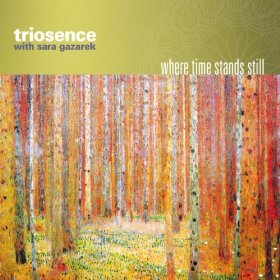




 Buy Now
Buy Now

